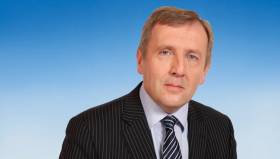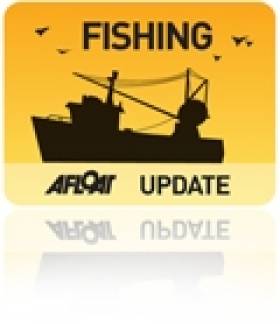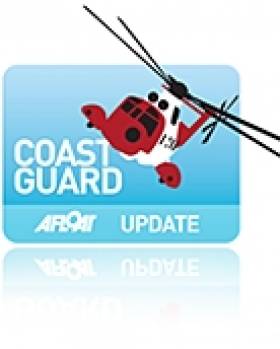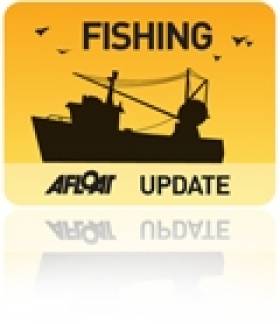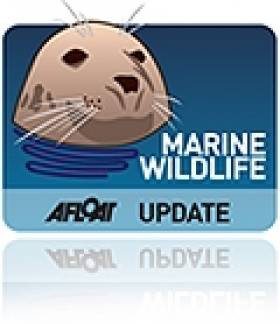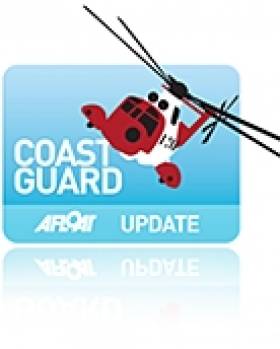Displaying items by tag: European Union
European Union Pledges €3.5 Billion to Protect the Oceans
The European Union has pledged €3.5 billion to protect the world’s oceans, as Silicon Republic reports.
A raft of commitments to support marine protected areas (MPAs), improve ocean observation programmes and more was made at the Our Ocean Conference in Athens, Greece on Tuesday (16 April).
Sustainable fisheries projects in Greece, Cyprus, Portugal, Spain and Poland will benefit from up to €1.9 billion of investment.
EU Commissioner for Environment, Oceans and Fisheries, Virginijus Sinkevičius said the EU has confirmed its “strong commitment to protect the ocean” with this announcement.
“The European Union continues standing up for the ocean,” Sinkevičius said. “The ocean is part of who we are, and our shared responsibility.” Silicon Republic has more on the story HERE.
Ireland is earmarked to receive more than €15 million in funding to develop its network of MPAs — but the Government has been criticised for missing the deadline on the Marine Protected Areas Bill, as previously reported on Afloat.ie.
Time Running Out to Support Campaign Against Shark Fin Trade in Europe
An EU-wide campaign against the shark fin trade in Europe is seeking votes from the public to take the matter to the European Parliament.
The removal of fins on board EU fishing vessels and in EU waters is prohibited by EU law and sharks must be landed with their fins naturally attached.
However, the European citizens’ initiative Stop Finning - Stop the Trade claims that the union is actually among the biggest exporters of fins and a major transit hub for the global fin trade.
“[The EU] is a major player in the exploitation of sharks and as inspections at sea are scarce. fins are still illegally retained, trans-shipped or landed [in the union],” campaigners say.
The initiative aims to end the trade of fins in the EU including the import, export and transit of fins other than if naturally attached to the animal’s body.
As finning prevents effective shark conservation measures, campaigners are requesting to extend REGULATION (EU) No 605/2013 to the trade of fins and therefore ask the commission to develop a new regulation, extending “fins naturally attached” to all trading of sharks and rays in the EU.
The initiative has collected more than 370,000 signatories out of the million required — but many member states have not met their individual threshold, including Ireland which needs another 5,000 supporters before the collection period closes on 31 January 2022.
Individuals can find out more about the campaign at www.stop-finning-eu.org and register their support for the initiative via the EU government portal HERE.
Minister Creed Meets With EU Fisheries Commissioner Vella
#Fishing - Marine Minister Micheal Creed yesterday (Tuesday 28 June) met with EU Fisheries Commissioner Karmenu Vella at the Fisheries Ministers Council in Luxembourg.
This was the first formal meeting between the two men since Minster Creed's appointment.
The minister described the meeting as "very useful and cordial and it gave me the opportunity to outline some of Ireland’s key fisheries concerns to Commissioner Vella, who has a very good understanding of Ireland's interests and issues”.
Minister Creed and Commissioner Vella exchanged views on a range of current topical fisheries issues and in particular the discussions around fishing opportunities for 2017.
“I wanted to take the opportunity today to impress upon the commissioner the need for a sensible approach towards the implementation of the policy of maximum sustainable yield," said the minister.
"I made the point that, in some cases, it may be necessary to delay reaching that target by a year or two. This will be vital for some of our important whitefish fisheries off the south coast.”
Minister Creed was attending the Agriculture & Fisheries Ministerial Council in Luxembourg where the main fisheries item on the agenda was the Commissions Communication of Fishing Opportunities for 2017.
This is the first step in the process of negotiation that will establish Ireland's fishing quotas for next year.
#Fishing - Marine Minister Simon Coveney will present a revised comprehensive compromise Irish EU presidency text to the EU Council of Fisheries Ministers on Monday 13 May seeking a new mandate to re-enter final negotiations with the European Parliament on a reformed Common Fisheries Policy (CFP).
Minister Coveney said that these decisive negotiations for agreeing a comprehensive reform of the CFP in Brussels on 13-14 May are likely to be very difficult given the significance for the next decade of what may be decided at the meeting.
“An enormous amount of work has gone into progressing the reform with council, commission and parliament during the Irish presidency," he said. "We now have an Irish presidency substantially revised set of compromise proposals which I believe give us a sound basis for positive engagement at council.
"Agreement at council on this presidency compromise package would support an ambitious reformed CFP which would secure a better future for our fish stocks and for the fishermen and coastal communities who depend on them."
The minister emphasised that there is a "very short window of opportunity for council and parliament to agree and deliver an effective reform of our fisheries policy and the Irish presidency is doing all it can to bring the institutions together to take this historic opportunity.
"I believe that if all parties focus on the critical elements of a reformed CFP, we can by working together reach realistic and substantial agreement through the co-decision process during the Irish presidency.”
Formal negotiations with the European Parliament have resulted in the Irish presidency drawing up a revised compromise 200-page legal text, which Minister Coveney, as president of the council, will use as the basis of negotiations with EU fisheries ministers.
The objective is to get political agreement on a final compromise package to enable conclusion of negotiations with the parliament and the commission on CFP reform during the Irish presidency, which concludes at the end of June.
Minister Coveney will also update EU ministerial colleagues on progress made to date by the Irish presidency during the ‘trilogue’ process where EU presidency (council), commission and parliament have been engaged in complex discussions on refining proposals for CFP reform.
EU-Wide Coastguard Would Tackle Drug Smugglers Says MEP
#Coastguard - Dublin MEP Gay Mitchell has called for the formation of a Europe-wide coastguard to tackle the scourge of drug smuggling, as Herald.ie reports.
The Fine Gael MEP said that cocaine in particular "is still entering the EU from South America" through the larger commercial ports in Belgium and the Netherlands.
He also claimed that Ireland "is losing €526m per year in revenue" due to tobacco smuggling.
His comments come as Justice Minister Alan Shatter outlined Ireland's determination to address the potential for collaboration by enhancing maritime safety, security and surveillance in the EU during the State's EU presidency.
These moves come a year after the director of the Irish Coast Guard said greater co-operation between Europe's coastguard organisations is inevitable.
As previously reported on Afloat.ie, IRCG chief Chris Reynolds told the audience at the Search and Rescue 2012 in Dublin that Europe's governments needed to develop a "sense of urgency" on the issue to deal with disasters such as the Costa Concordia tragedy.
Groups Urge Fisheries Ministers For Action On CFP
#CFPreform - RTÉ News reports that up to 200 conservation groups in Ireland and abroad have written to Marine Minister Simon Coveney and his EU counterparts urging his support for an end to overfishing in European waters by 2015.
The groups claim that mismanagement of EU fisheries under the Common Fisheries Policy has resulted in significant overfishing, particularly in the Mediterranean where as much as 80% of fish stocks are fished far beyond sustainable levels.
As previously reported on Afloat.ie, Minister Coveney - who is President of the European Council of Fisheries Ministers - welcomed a vote in February on a reform agenda for the CFP, which has been prioritised for delivery by the Irish EU presidency before the six-month term concludes at the end of June.
Marine Minister Welcomes Vote on Common Fisheries Policy Reform
#CFPReform - Minister for the Marine Simon Coveney, in his capacity as President of the European Council of Fisheries Ministers, last week welcomed the vote by the European Parliament on the reform agenda for the Common Fisheries Policy (CFP) which has been prioritised for delivery by the Irish EU presidency.
The vote, which is seen a major step forward in the CFP reform process, follows the minister’s address to parliament on Tuesday last. At the address the minister appealed for all parties to work together towards an agreed CFP reform package to be delivered during the period of Ireland’s presidency.
These reforms, which prioritise long term sustainability of fishing stocks, elimination of the controversial practice of discards (dumping at sea) and a switch to long-term (scientifically based) planning for fisheries, were approved by the parliament on Wednesday 6 February.
The decision of the parliament follows the minister’s address last Tuesday during which he identified the reforms as a major priority on the Irish Government’s EU presidency agenda.
Minister Coveney stated: “I am delighted that the parliament has today decided to back these necessary and timely reforms to the Common Fisheries Policy and that the case for reform outlined in my recent address has been accepted in an agreed manner.
"I am particularly encouraged that this vote has occurred during the Irish EU Presidency. This shows the pivotal role which Ireland can play in influencing broader European Policy and in bringing together divergent views towards an agreed reform package for the CFP.
"Ireland has set out an ambitious work programme aimed at delivering an agreed reform package for the CFP by the end of June. This objective can only be realised if [European] Parliament, Council and the Commission work together focusing on the bigger picture of an agreed reform agenda to benefit all of Europe’s citizens.”
During his address to the plenary session of European parliamentarians, Minister Coveney expressed his view that a momentum was now gathering behind the drive to deliver an agreed reformed CFP package by the end of June.
Acknowledging to the parliament that he had set out an ambitious work programme for his presidency, the minister accepted that differences remain between the European Council and Parliament, particularly on the question of multi-annual fisheries plans.
Minister Coveney emphasised the significant areas of common ground between both institutions and his belief that this would eventually lead to an agreed way forward on most aspects of the reform package. He stressed that it was only in a framework of mutual cooperation and flexibility that the objective of a reformed CFP which prioritises long term fisheries sustainability could be delivered in the lifetime of the current Irish Presidency.
The minister acknowledged the challenges ahead and emphasised the importance for the EU Parliament, Council and Commission to work together on all the issues including delivering on maximum sustainable yield, the elimination of discards and regionalisation.
Following an exchange of views, the minister sought support for his objective of achieving political agreement by the end of June in addition to acceptance of the need for a different and more effective way of working to deliver on what is a commonly held objective. He committed to working constructively with the parliament on all outstanding issues.
Important Fisheries Talks Continue in Brussels
#Fishing - Important talks on EU fisheries reform are continuing in Brussels after progress in Clonakilty recently, according to RTÉ News.
As previously reported on Afloat.ie, Marine Minister Simon Coveney welcomed a deal signed on Friday 18 January between the EU and Norway on allowable catches and quotas.
The agreement was seen as a positive move at the end of a week of talks at the National Seafood Centre, which followed a number of false starts due to difficulties in balancing mutual access and management arrangements.
Minister Coveney said that meetings taking place in Brussels today (28 January) are "about setting the scene for six months of intensive work" to produce dossiers for both the Common Fisheries Policy and the Common Agricultural Policy, for which he hopes definitive reforms can be achieved by this summer.
Both the CFP and CAP account for 40% of the European Union budget.
Canada Watching EU Seal Cull Plans With Interest
#MARINE WILDLIFE - The Globe and Mail reports that Canada is keeping tabs on an EU plan to "manage" Europe's seal population amid growing controversy over the issue.
Last month the European Parliament approved a resolution on the Common Fisheries Policy that called for the European Commission to investigate the impact of "natural predators such as sea lions, seals and cormorants" on the reduction of fish stocks and draw up plans to regulate their numbers.
Canada's sealing industry claims this about-face in EU policy is hypocritical considering Europe's ban on commercial seal products three years ago, as well as its longstanding criticism of the Canadian seal hunt.
Already Scotland has approved a cull that has granted licences to kill over 1,000 seals on its coastline this year alone. And fishermen in Ireland, particularly on the west coast, are calling for the Irish authorities to take similar action.
Afloat.ie has previously reported on the tensions between fishermen and marine wildlife campaigners over the impact of protected seal populations on fish stocks.
Over the summer, the Dingle Seal Sanctuary claimed that a number of horrific reports of illegal seal killings committed by culprits unknown are part of a "swing in activity" since the start of the year - although the National Parks and Wildlife Service said it has not recorded any increase.
Fishermen in Kerry have come out in condemnation of these illegal killings, in particular the barbaric scene in which two baby seal heads were nailed to signs outside the Dingle sanctuary in early June.
However, they maintain that a cull of the local grey seal population is necessary, claiming they are "over-protected" and can consume as much as 10kg of fish each per day, resulting in depleted stocks of hake and haddock, as well as posing a threat to salmon conservation measures.
The Globe and Mail has more on the story HERE.
Unified EU Coastguard On The Cards
#COASTGUARD - Greater co-operation between Europe's coastguard organisations is inevitable, according to the Irish Coast Guard director.
Chris Reynolds was speaking at Search and Rescue 2012, the EU Heads of Coastguard conference in Dublin last Thursday, at which he outlined a feasibility study being conducted by the European Commission on a standardised coastguard service across Europe.
As Shephard Media reports, Reynolds admitted that some challenges stood in front of any effective change in the sector, noting that SAR policy at member state level is often spread across many departments.
But the Costa Condordia disaster off the Italian coast recently may focus governments to develop a "sense of urgency" on the issue, he said.
In the keynote address at the conference, Italian coastguard chief Giuseppe Troina said it was fortunate that the death toll in that incident had not been much greater, emphasising that more than 4,000 people survived the cruise ship's sinking.
The Irish Times has more on the story HERE.


























